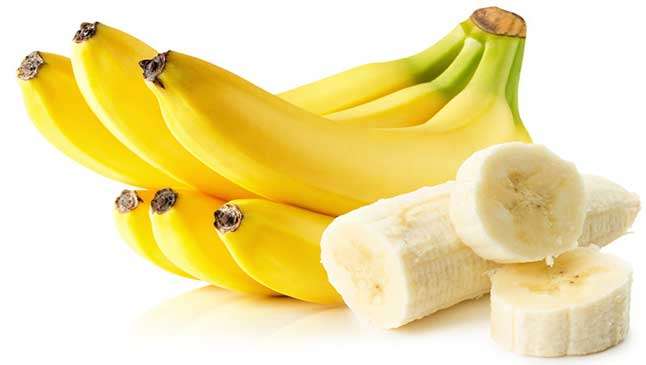Protein is an essential nutrient that is required for the growth and repair of body tissues. It is also important for maintaining a healthy immune system and for the production of enzymes and hormones. However, many people find it difficult to consume enough protein in their diet, especially those on a budget. In this blog post, we will be discussing 5 cheap and healthy sources of protein that can be easily incorporated into your diet.
Eggs:
Eggs are a great source of protein and are relatively inexpensive. One large egg contains about 6 grams of protein, making them a great option for those on a budget. They can be cooked in a variety of ways such as scrambled, fried, poached, and boiled, making them a versatile ingredient in many recipes. Eggs are also a good source of other essential nutrients such as vitamin D, vitamin B12, and choline.
Benefits of eggs
- High in protein: One large egg has roughly 6 grams of protein, making it a wonderful source of protein.
- Rich in critical vitamins and minerals: Eggs are an excellent source of vitamins D, B12, choline, and selenium, among other important nutrients.
- Eggs are a good source of protein and are low in calories, which can aid with weight management. According to studies, those who eat eggs for breakfast tend to feel satisfied for longer periods of time and consume fewer calories throughout the day.
- Eggs include nutrients like choline and lutein that have been associated with a lower risk of heart disease, making them good for heart health.
- Eggs are a flexible component that may be prepared in a variety of ways and are used in a wide variety of recipes.
Canned Tuna:
Canned tuna is another budget-friendly option for getting protein. It is a convenient and easy to use product that can be used in a variety of recipes. One can of tuna contains about 22 grams of protein. Tuna can be used in sandwiches, salads, and pasta dishes, making it a great option for a quick and easy meal. It is also a good source of omega-3 fatty acids, which are known to have many health benefits.
Benefits of Canned Tuna
- High in protein: Canned tuna is a great source of protein, with one can of tuna containing about 22 grams of protein.
- Convenient and easy to use: Canned tuna is a convenient and easy to use product that can be used in a variety of recipes. It does not require any special preparation, just open the can, drain the water and it is ready to use.
- Good source of omega-3 fatty acids: Tuna is an excellent source of omega-3 fatty acids, which are known to offer a number of health advantages, including lowering inflammation and enhancing heart health.
- Budget-friendly: Canned tuna is relatively inexpensive and can be a good option for those on a budget.
- Long shelf life: Canned tuna has a long shelf life, which makes it a great option for stocking up and keeping on hand for those days when you need a quick and easy meal.
Beans and Legumes:
Beans and legumes such as lentils, black beans, and chickpeas are a cheap and healthy source of protein. They are also a good source of fiber and other essential nutrients. One cup of cooked beans or legumes contains about 15 grams of protein. They can be added to soups, stews, and salads, or even used as a side dish or as a filling for tacos or burritos.
Benefits of Beans and Legumes
- High in protein: Beans and legumes are a great source of protein, with one cup of cooked beans or legumes containing about 15 grams of protein.
- Rich in fiber: Beans and legumes are a good source of dietary fiber, which can help to promote healthy digestion and lower cholesterol levels.
- Low in fat: Beans and legumes are low in fat and are cholesterol-free, making them a healthy choice for those looking to manage their weight and reduce their risk of heart disease.
- Versatile ingredient: Beans and legumes can be used in a variety of dishes such as soups, stews, and salads, or even used as a side dish or as a filling for tacos or burritos. They are also a great alternative to meat in vegetarian or vegan dishes.
- Budget-friendly: Beans and legumes are relatively inexpensive and can be a good option for those on a budget. They can be purchased in bulk and stored for a long time making them a good option for stocking up.
Peanut Butter:
The protein-rich food peanut butter is very reasonably priced. About 8 grams of protein may be found in two tablespoons of peanut butter. Spreadable peanut butter can also be used in baking and as a component of sauces and dips. It may be used with bread, crackers, fruits, or veggies for a quick and simple snack. Additionally, peanut butter is a fantastic source of heart-healthy fats that can help decrease cholesterol and minimize the chance of developing heart disease.
Benefits of Peanut Butter
- High in protein: Peanut butter is a good source of protein, with two tablespoons of peanut butter containing about 8 grams of protein.
- Rich in healthy fats: Peanut butter is a good source of healthy fats, which can help to lower cholesterol levels and reduce the risk of heart disease.
- Good source of antioxidants: Peanut butter contains antioxidants such as resveratrol, which can help to protect the body against cell damage.
- Versatile ingredient: Peanut butter can be used as a spread, in baking, or as an ingredient in sauces and dips. It can be paired with fruits, vegetables, crackers, or bread for a quick and easy snack.
- Budget-friendly: Peanut butter is relatively inexpensive and can be a good option for those on a budget. It can be purchased in bulk, and store for a long time, making it a good option for stocking up.
Greek Yogurt:
Greek yogurt is a good source of protein and can be a healthy alternative to other high-protein dairy products. One cup of Greek yogurt contains about 17 grams of protein. It can be used in smoothies, as a dip, or as a substitute for sour cream. Greek yogurt is also a good source of calcium and probiotics, which are beneficial for gut health.
Benefits of Greek Yogurt
- High in protein: Greek yogurt is a good source of protein, with one cup of Greek yogurt containing about 17 grams of protein.
- Rich in calcium: Greek yogurt is a good source of calcium, which is essential for strong bones and teeth.
- Contains probiotics: Greek yogurt is a good source of probiotics, which are beneficial for gut health.
- Low in fat and calories: Greek yogurt is lower in fat and calories compared to regular yogurt, making it a healthier option for those looking to manage their weight.
- Versatile ingredient: Greek yogurt can be used in smoothies, as a dip, or as a substitute for sour cream. It can also be used in cooking and baking to add a tangy flavor and creamy texture to many dishes.
In conclusion, incorporating these cheap and healthy sources of protein into your diet can be an easy and budget-friendly way to ensure that you are getting enough protein. Eggs, canned tuna, beans and legumes, peanut butter, and Greek yogurt are all great options that can be easily incorporated into many different recipes. By making a few simple changes to your diet, you can ensure that you are getting the right amount of protein to support your overall health and well-being.


